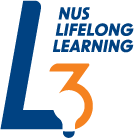Objectives
- Identify needs of intelligent sensing technology in various industrial applications;- Acquire knowledge of core intelligent sensing theories, analyse various signal processing models and algorithms;- Design, apply and evaluate the performance of various intelligent sensing and sense making techniques.
Who Should Attend
- Data Scientist, Software Engineer, System Architecture, who need sensor signal processing skills to design and build systems that make decisions by recognizing complex patterns in data.- IT professionals, who are managing projects and products related with intelligent sensing systems.
Entry Requirements
- Previous knowledge of signal processing will be helpful- Participants should have intermediate skills in Python programming (e.g. Numpy, Pandas), and intermediate knowledge in machine learning (e.g. building a neural network model in Keras/Tensorflow).- Intermediate mathematics and statistics knowledge, e.g. linear algebra, probability.
| ** |
|
Please note that the mode of delivery is subject to change in light of the COVID-19 situation.
Courses marked ‘online’ may have compulsory face-to-face sessions such as laboratory or hands-on components and details should be sought from the schools or departments before learners register for them.
|
Last updated: 12 April 2024


